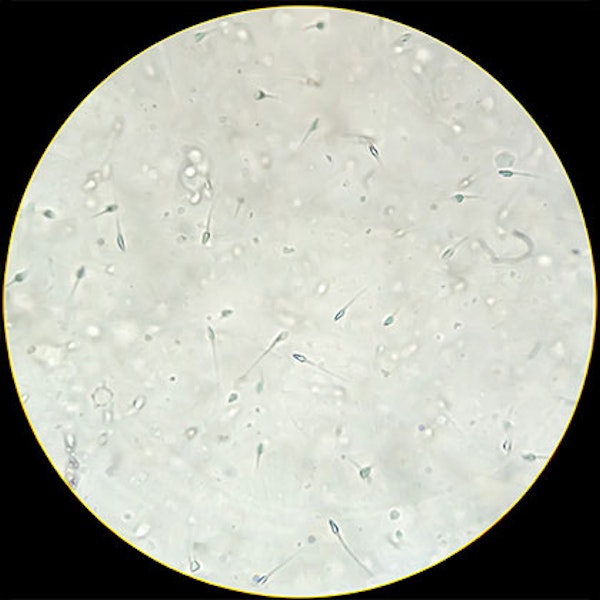Male Infertility
Are you and your partner struggling to conceive?
Male factor infertility is more common than many people may think, impacting up to a third of fertility cases.
At Denver Fertility Care, our reproductive experts are dedicated to helping patients overcome male infertility in Greater Denver, CO.
Causes of Male Factor Infertility
Many male infertility causes are unknown.
However, other common factors that can lead to male infertility include:
- Tobacco use
- Excessive alcohol consumption
- Drug use
- Obesity
- Erectile dysfunction
- Environmental exposure
- Testicular issues such as trauma or overheating
- Family history of fertility issues
- Certain medical conditions or diseases
- Cancer treatments, such as radiation or chemotherapy

How Sperm Count Impacts
Male Fertility
One of the most common causes of fertility concerns in males is low sperm count, also known as oligospermia. Sperm count can be affected by issues such as environment, lifestyle, genetics, and medical issues like cancer.
Normal sperm counts range from 15 million to 200 million sperm per milliliter of semen or more. Anything under 15 million is considered a low sperm count.

Sperm Motility and Morphology
Another factor your fertility doctor will examine is sperm motility. Sperm that have good motility are able to effectively move through the female reproductive tract to reach and fertilize the egg. If the sperm can't move properly, there is less of a chance it can reach the egg.
The shape of the sperm, or morphology, can also be a factor in male infertility. A normal sperm cell should have an oval head with a long tail. A misshapen head, tail, or even a double tail can make it difficult for the sperm to move through the female reproductive tract and achieve fertilization.
How are Male Fertility Issues Diagnosed?
Semen Analysis
A semen analysis is a painless test that involves providing a semen sample. Your doctor will then look at this sample under a microscope to examine the size, shape, motility, and quantity of your sperm.
Blood Work
Hormones play a major role in the production of sperm and sexual development. Blood work will be performed to measure levels of testosterone and other necessary hormones.
Fertility Treatments

Lifestyle Changes
Lifestyle changes such as losing weight; ceasing the use of tobacco, alcohol, and drugs; and supplementing with vitamins can help increase sperm production and fertility.
IUI
Intrauterine insemination (IUI), is a method of reproductive medicine that involves inserting sperm directly into the uterus or fallopian tubes.
IVF
During in vitro fertilization (IVF), eggs are retrieved from the mother or donor and fertilized with sperm in our lab. In some cases, a single sperm is directly injected into the egg in a process called intracytoplasmic sperm injection (ICSI).

Surgery
In some cases, surgery is needed. This may include vasectomy reversal or the manual retrieval of sperm. We can also work with a urologist.
Hear from a Real Colorado Patient
"Like many, my husband and I have embarked on a journey to parenthood filled with uncertainty and challenges, however, we could not have done this without the support of Dr. Ambler and the extended team at Denver Fertility Care."
Courtney, 2024










